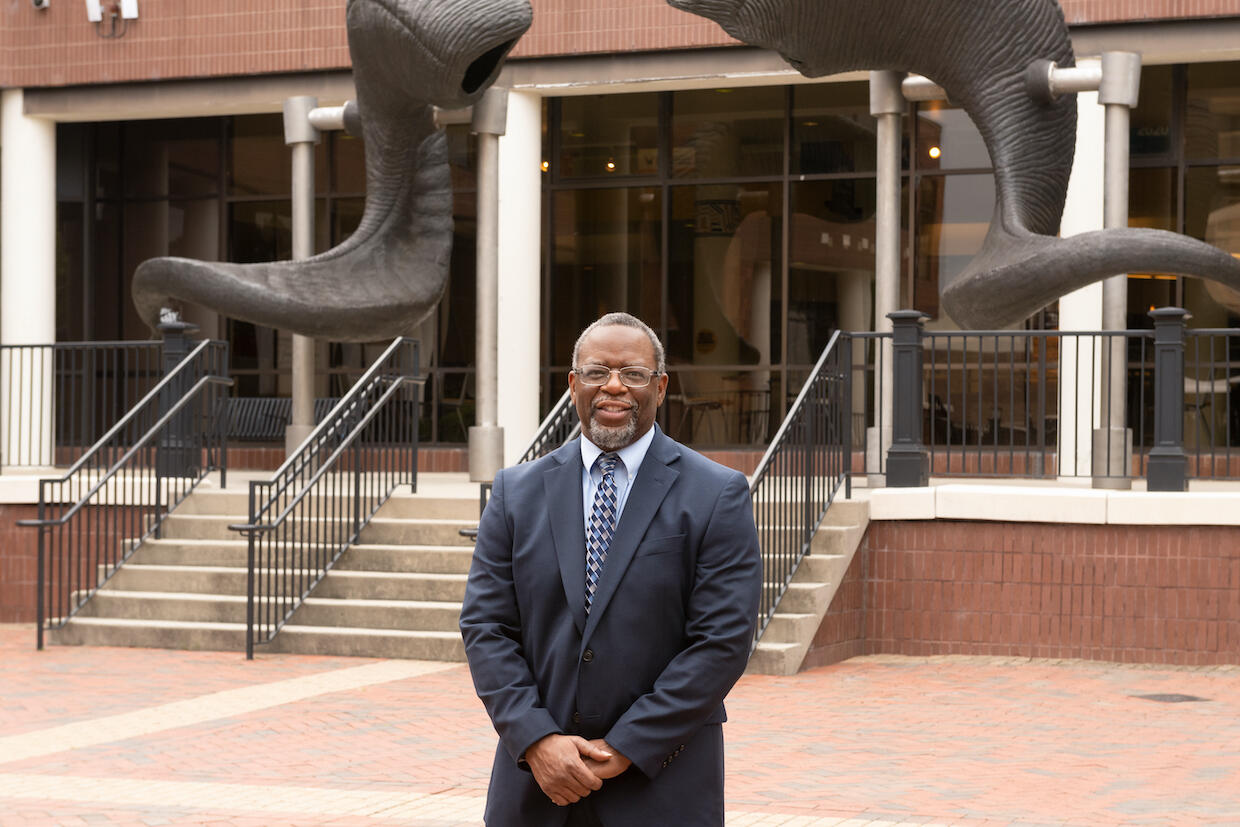
Sept. 1, 2020
‘Support and care for students’: University Counseling Services poised to help in a stressful time
Share this story
Jihad Aziz understands this is going to be a unique semester, one likely full of new stressors for students.
Adjusting to the new school year, academic pressures, new distancing regulations on campus, the overall impact of COVID-19, and social unrest will “stir up lots of different things for lots of different students,” said Aziz, Ph.D., a psychologist and executive director of University Counseling Services at Virginia Commonwealth University.
“We're probably talking about students dealing with grief, maybe lost family members, heightened anxiety for family members who might become ill, not to mention the overall economic impact of COVID and students coming back. Their parents and other people that they are concerned about in their lives may have lost employment and [there’s concern about] how they're going to pay for school,” Aziz said.
Aziz and his colleagues at University Counseling Services are available to help with a host of services, including confidential telehealth consultations and group therapy appointments, referral services, support and skills groups, sexual and intimate partner violence advocacy and crisis services.
“We provide individual effective brief therapy to provide support and care for students,” Aziz said. “As far as new services, one of the things that we started this summer was support groups in particular for COVID, and for students of color with everything going on. We also have support groups for our international students, given everything with the visa. It's an unprecedented event.”
Aziz said the University Counseling Services staff aims to support students and remove barriers. Two keys to students’ well-being, he said, are building a sense of belonging and developing the skills to make and keep friends.
“We make an assumption that students know how to make friends, or they come from places where that's a preexisting skill set, and that's not always true,” Aziz said. There are university resources that help students “understand how people connect around interests and how to have small conversations with one another. One of the challenges with some of the technology is that you don't develop those in-person skills.”
|
Aziz acknowledges that many social connections have evaporated in residence halls, dining halls and classes with the emphasis on virtual meetings and social distancing. He encourages students to overcome the isolation that is a byproduct of COVID-19 through other means.
Some students who feel anxious or lonely may not necessarily find the answer through counseling, Aziz said. Additional resources that may provide a support system for mental well-being are available at The Well. Other VCU resources to build connections include Recreational Sports, Student Life and student organizations, and Residential Life and Housing.
Anxiety has been a top concern for students at universities nationwide, Aziz said.
“We have a ‘reclaiming your life from anxiety’ group to help students better manage that,” he said. “It's a lot to take in and deal with for people who are living through some difficult times. There are some students who haven't built up that necessary resilience. So it makes sense that they would be anxious, especially with this sense of uncertainty. Counseling will be there to support those students where that might be a bit more challenging.”
Learn more about wellness resources at VCU, and connect with University Counseling services at counseling.vcu.edu/ or by calling (804) 828-6200.
Subscribe to VCU News
Subscribe to VCU News at newsletter.vcu.edu and receive a selection of stories, videos, photos, news clips and event listings in your inbox.







